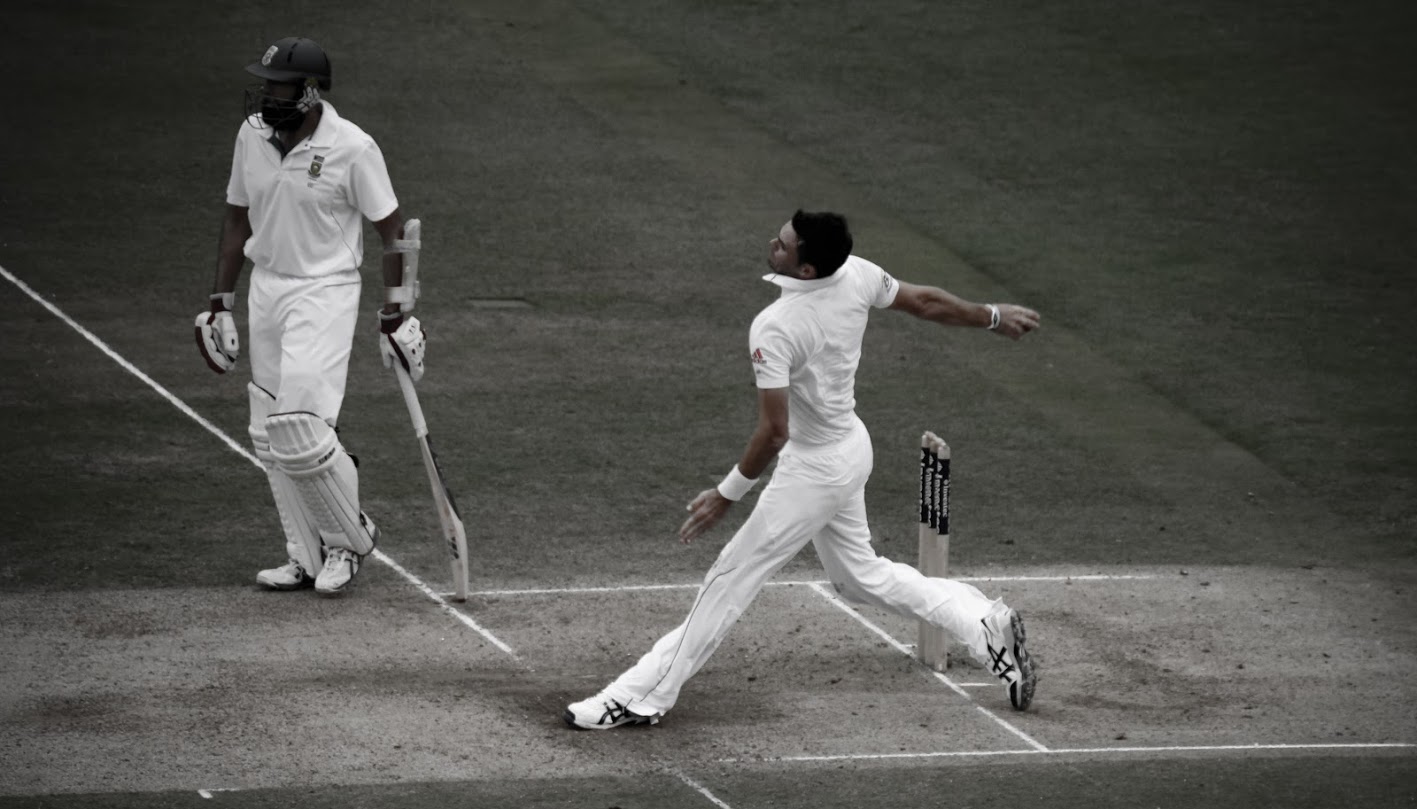Some things can not be overhyped. A few events live up to every word of hyperbole. And occasionally our memories do not deceive us – the reality was every bit as good as our recollection. The 2005 Ashes, which began ten years ago this month, were one such passage of time.
It was the greatest series I have ever witnessed. It was the greatest series ever played in England. Who can say it wasn’t the greatest series of all time?
The 2005 Ashes were a perfect storm, a narrative sent by the gods. A world champion Australian team, bedecked with superstars. A virile England team on the rise, at the peak of their potency and confidence. Two prize-fighters, the incumbent and challenger, determined to slug it out to the last breath in their bodies. Skill, pride and tradition met in a crucible of hope and ambition.
England had not won the Ashes for so long – more than eighteen years – we thought we would never, ever win them again. Younger supporters had yet to see an England captain lift the urn in their lifetimes. A generation of abject failure in the contest which defines English cricket had corroded our identity and self-worth.
But by the time July 2005 dawned, a new mood had swept the land. We had won in West Indies, and then all seven tests the previous summer, before beating South Africa the following winter. We had a chance – no more than a chance, but a chance nonetheless.
So often, feverish anticipation leads ultimately to sporting anti-climax. In the case of 2005, this could not have been further from the truth. The series was so close, so gut-wrenchingly taut, so unendingly thrilling, we were literally unable to peel our eyes from the screen. We could handle despair, but hope tortured our emotions to breaking-point.
Ensnared in the saga’s iron maiden grip, we writhed in agonised contortions of ecstasy and foreboding, week after week, for nearly two months. Each successive match racked up the uber-tension until our shredded nerves nearly capitulated. All logic said we’d prevail. All experience told us to worry.
Three of the five tests went down to the nano-wire. After Lord’s – where we’d rampaged through Australia to dismiss them for a first-innings 190, only for Glenn McGrath to effortlessly prick our balloon – came the unique drama of Edgbaston, groaning under the weight of its myriad twists and turns. We won by just two runs. Next, at Old Trafford, we were one wicket away from victory when the overs ran out.
On to Trent Bridge, when after dominating for three days, we ended up stumbling over the line amid the gravest jeopardy, seven wickets down. Australia’s second innings 387 presented us with a target – 129 – right in the sweet spot of awkwardness: easy on paper, excruciating to witness.
I could not bear to watch, and instead waited in a TV-free cafe, afraid to check the score, and returning only when I expected the match to be over. I failed, and arrived home to watch Flintoff scuttled by a Brett Lee break-back and Geraint Jones sky Warne to mid-off. The next twenty minutes were the most painful of my life.
Finally came the agony of the fifth day at the Oval. Could we keep Australia in the field long enough? Could we score enough runs? Kevin Pietersen nicks to slip. Shane Warne doesn’t hold on. Inch by suffocating inch we crawled to safety from the enemy’s lair – until, at last, Pietersen ignited his booster rockets and set the controls for dreamland. Joy was unconfined. At the nearly unbelievable sight of an England captain lifting the urn, and as the glitter rained down on the Kennington turf, came the almost overwhelming sensation of catharsis and relief.
So where was I, during the most important session in the history of English cricket? Where was I when we reclaimed the terracotta after eighteen long, morale-sapping years? Glued to the television set? High-fiving our heroes as they victory-lapped the outfield? Dancing in the streets of south London? No, I was in a villa in Umbria, Italy, with no access to internet or TV, “enjoying” the world’s most ill-timed holiday, thoughtlessly booked many months before. This was 2005, before the advent of smartphones or Sky Go. I had to follow the most important, knife-edge session in the history of English cricket via occasional texts from friends back home.
Woven through the series like the threads of Joseph’s coat were performances of iridescent memorability. Andrew Strauss’s pair of centuries. The last of Marcus Trescothick’s summer wine. Andrew Flintoff counter-attacking, twice, at Edgbaston. Michael Vaughan’s Mancunian 166, often overlooked.
After the batsmen had done their work, in roared the Awesome Foursome, England’s finest ever bowling quartet. Steve Harmison’s thunderbolts at Lord’s. Matthew Hoggard at his wiliest, Andrew Flintoff at his most penetrative, and Simon Jones just being Simon Jones.
So many moments, a lifetime’s worth, remain seared into our collective databanks. Ponting’s battered grille. Pietersen thumping McGrath into the Lord’s pavilion. Flintoff’s Super Over. Harmison-Kasprowicz-Jones and Bowden’s crooked finger. Strauss’s wonder-catch to remove Gilchrist. Gary Pratt.
Three deliveries define my own memories. The very first wicket of the series, which I saw in the flesh: Hoggard swung one through Matthew Hayden’s defences to castle him, gloriously, middle and off. This was not how Ashes series were supposed to begin. Then at Edgbaston, Harmison’s slower ball to despatch Michael Clarke – the most perfect and beautiful piece of cricket I have ever seen. And in the unbearable closing stages of the Trent Bridge test, when a dozen runs separated our tail from the twin destinies of glory or despair, Hoggard impudently, miraculously, drove Brett Lee to the cover boundary. That was the ball which won the Ashes.
As the series played out, pulsating match after match, it spun a web around the national consciousness, exerting an emotional pull with few parallels in the annals of British sport. People with no previous interest in cricket found themselves gripped. Casual observers who’d regarded the team as a joke now fell under their spell. England fell in love with cricket again. Newspapers put the sport on the front pages. The players became household names. Television audiences watched in their millions – and it is no coincidence the coverage was on free, terrestrial channels.
Those of us who’d followed the team loyally through the fallow years stumbled through the carpet of spent champagne bottles in hazy astonishment, scarcely able to believe it was true. We wandered nervously through these unfamiliar surroundings, marvelling at the luxury, still convinced it might be a dream. It was as if a TV makeover show had transformed our hovel into a palace overnight.
But we did not resent the arrivistes who’d gatecrashed our party. We welcomed them into our family, proud of our team and our game and delighted to share the love. Unlike now, 2005 was an age of innocence. And if it proved anything, it was that cricket belongs not to sectional interests or administrators – but to everyone.
While 2005 wasn’t quite too good to be true, it was too good to last. That England side could have become the greatest England XI of all, but fate had other ideas. No sooner had Flintoff sobered up than injury and illness began to dismantle the team’s core. Nothing would ever be quite so wonderful again, but nor could it. Everest can only be conquered once. And perhaps it’s better that way. We will always have our memories, and no one can ever take them away from us.









Bloody hell. Still banging on about 2005?
.
What would English fans say if Australians continually rehashed 2006-07 in blow by blow detail the way they do 2005?
.
It’s like English fans only remember the series they win.
It’s the curse of English sport, forever fading and harking back to 1 monumental effort – 1966 in the soccer, 2003 in the rugby, 1981 and then 2005 in the cricket, …
It’s nothing to do with that. It’s the fact that it was the greatest, closest series ever and it was so agonisingly close that it captured the interest of the whole country (it was on free telly…!). It’s hard to convey what it was like being an England supporter – they’d been so bad for so long, yet here they were, competing and eventually beating one of the finest Aussie sides ever – Warne, Glichrist and McGrath will get into many people’s all-time Test 11, and Ponting and Hayden aren’t far behind. Langer, Martyn and Lee weren’t exactly slouches. 18 years is a long time, and it meant so much after all the dross we’d been forced to endure. No-one rehashes England’s subsequent wins, just as no-one rehashes Australia’s two subsequently whitewashes, because one-sided cricket isn’t memorable. 2005 is remembered because it was the greatest series ever played, and would still have been even if Warne had caught Pietersen and it had ended 2-2…
“It’s the fact that it was the greatest, closest series ever and it was so agonisingly close that it captured the interest of the whole country (it was on free telly…!). It’s hard to convey what it was like being an England supporter – they’d been so bad for so long, yet here they were, competing and eventually beating one of the finest Aussie sides ever – Warne, Glichrist and McGrath will get into many people’s all-time Test 11, and Ponting and Hayden aren’t far behind. Langer, Martyn and Lee weren’t exactly slouches. 18 years is a long time, and it meant so much after all the dross we’d been forced to endure.”
.
Ultimately, all it does is fetishise that Australian side.
.
The greatest moment of English cricket in recent memory is a moment in the reflected greatness of that all-time great Australian side. It’s a great moment because England finally got one over on a side that was better than them.
.
England beat a great Australia side and are still having a circle-jerk about it 10 years later. Wouldn’t it be more notable if England were actually the best and other countries aspired to beat them? That’s what Australian cricket fans talk about, while English fans are still talking about a famous victory against a great Australian side 10 years later. Isn’t that a bit depressing? Can you see why Australians look down their nose at England’s cricket culture?
Yes I think I’m just about up to comprehending that, and no it isn’t depressing. The retention of class and decorum is as important to true English supporters than the winning itself. Therein lies the fundamental cultural conflict.
Well done. Have a scone and an MBE for your good manners.
I have to tell you that Australians rehash the Whitewashes.
That you scraped over the line in 2005 largely due to Glenn McGrath’s injury and then made international fools of yourselves in a welter of self-congratulatory mutual masturbation was a blip for us. At first painful but then more and more amusing as 06/07 progressed.
We still talk about Freddie, we loved him for his larrikin streak that had him blathered at number 10 and felt so sorry for him in 07 having to apologise and apologise again to the TV cameras that we would have granted him instant citizenship so he could escape from the losers around him.
Having said all that it was a famous victory and I don’t blame you for making a meal of it after so long in the wilderness, but to keep cr*pping on about it now is getting a bit sad. It’s like the idiots who go on and on about Jardine and Underarm bowling. It’s time to get some new material.
Joy unconfined. I still watch re-runs 10 years on. The summer my wife finally realised there was a point to cricket… I’ve never forgiven Vaughan for putting us through the chase at Trent Bridge. I reckon enforcing the follow-on was his only significant captaincy mistake of the series – 250 ahead on first innings on Saturday morning, the follow-on was the only way for Aussie to get back in the game. If Shaun Tait hadn’t played the most brainless shot imaginable to get bowled and Brett Lee had been given another over or two of swinging from the other end, we’d have lost. Lee’s ball to bowl Flintoff in the chase was as close to unplayable as anything I’ve ever seen. But I was amused you were unable to watch – I managed that one, but was exactly the same at The Oval! Convinced it was lost at lunch, I sat in the garden and missed Pietersen’s early afternoon assault. It’s the only time in 35 years of watching sport that I’ve been unable to look. First time I peeked Colly was still earning his MBE….next time he and Jones were gone. I came back when Pietersen was about 80. Wonderful, wonderful memories…
Personally I thought 1998 was a shade better.
You are entitled to relive your memories. I have to say I love watching Bangladesh destroy you in the WC, I also enjoyed the 2014 whitewash but was very pissed off when the Sydney test ended on day 3, I had day 4 tickets but grinding England into the ground made up for my personal disappointment.
btw, what has happened to Clive?
btw, what has happened to Clive?
I was going to ask the same thing, I noticed he wasn’t around. He was on the G county cricket blogs not very long ago.
Work, maybe.
1966! Oh, sorry, wrong sport…
http://www.thecricketmonthly.com/story/888421/cook-s-pickle
worth a read
In response to Australian critiques of my post…
As HP says above, 2005 occupies such a central space in the English mythology for three main reasons, all of which I outline above. 1. We’d not won the Ashes for 18 years and thought we never would again. 2. The series was incredibly close. 3. The standard of cricket was fabulous.
It is categorically not about gloating over beating Australia, as I think any re-read of my article makes clear, and why I have not written encomiums to 2009, 2010/11 or 2013. In the latter two of those series we beat Australia by much larger margins, but not amid the same atmosphere or magic and miracle.
Australians love beating the English because it forces an uncomfortable reality upon them, one which England would never acknowledge if left to their own devices.
Watching from India, I was 10 years old at the time of 2005 Ashes. Just loved the action… Still remember most of it!